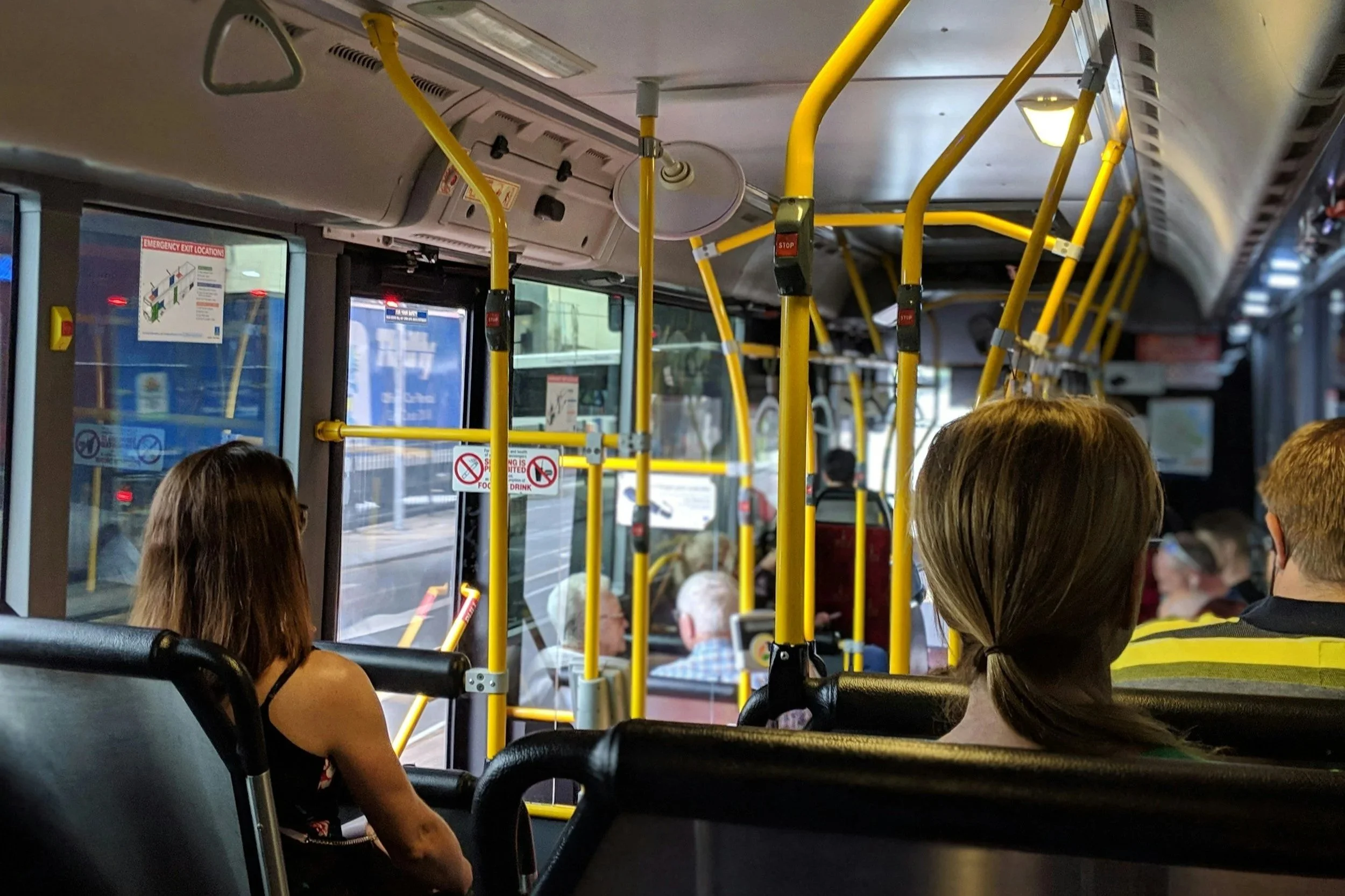Free Public Transport – A Blueprint for Fairer and Future-Oriented Societies
“When mobility is free, opportunity becomes less limited. Societies thrive when no journey is out of reach, when daily travel connects people instead of dividing them, and when the freedom to move is a shared foundation for progress.”
BYOS.ONE
What if buses and trains without fares were not a utopia, but a practical path to cleaner air, stronger trust, and better mobility without limitations — a model where daily travel becomes a shared right and a foundation for fairer societies?
Anticipating the Critics
Whenever the idea of free public transport is raised, the same objections quickly appear: It’s too expensive. It’s inefficient. It’s unrealistic. But these arguments ignore three fundamental truths.
First, the costs already exist. Traffic jams, accidents, air pollution, and social exclusion drain billions from our economies and well-being every year. Free public transport directly reduces these hidden costs for society.
Second, financing is possible. Money currently tied up in road subsidies, fossil fuel incentives, or inefficient bureaucracies can be redirected. Mobility is not a luxury – it is a public good, as essential as clean water or education.
Third, efficiency grows with use. The more passengers rely on buses, trams, and trains, the more governments can justify modern fleets, frequent services, and better infrastructure. What may seem utopian at first glance is, in fact, a practical, proven tool for justice, sustainability, and inclusivity.
Inspiring Examples from Around the World
Free public transport, often called fare-free public transit or zero-fare public transport, is public transport which is fully funded by means other than collecting fares from passengers.
On 29 February 2020, Luxembourg became the first country in the world to make all public transport in the country (buses, trams, and trains) free to use.
Luxembourg – the first nation worldwide to abolish fares for all (since 2020).
Malta – buses free for all residents since 2022.
Tallinn, Estonia – fare-free for residents since 2013, boosting ridership and easing congestion.
Montpellier, France – as of 2023, all residents travel free of charge.
Capri & South Tyrol (Italy) – pioneering regions that prioritize collective mobility over financial barriers.
Belgrade, Serbia – taking the bold step in 2025 to eliminate fares citywide.
Kharkiv, Ukraine – despite enormous challenges, it became the world’s largest city with free transport in 2022.
Brazil – more than 100 municipalities have already adopted fare-free transport, reporting striking social benefits.
» These examples prove the concept works, inspires, and scales.
When Politicians Ride the Bus
One particularly powerful idea is to encourage – or even require – politicians and government officials to use public transport themselves. Imagine what could happen if leadership shared the same daily commute as their citizens.
Such a policy would foster trust, showing leaders live the same realities as the people they serve. It would naturally improve quality, because those experiencing delays, overcrowding, or unsafe conditions would have every incentive to fix them. It would also reduce emissions and costs, with fewer official cars and less bureaucracy. Most importantly, it would send a clear signal of humility: mobility is not a privilege of office, but a right shared by all.
Legislation, awareness campaigns, and grassroots advocacy could make this shift a reality – a small change with transformative potential.
More Than Buses and Trains
Free public transport is about far more than moving people from A to B. It reshapes societies to be:
Fairer – when mobility is a right, not a privilege.
Greener – with fewer cars, cleaner air, and healthier cities.
More democratic – when politicians and citizens share the same experience.
More trustworthy – when public services are used and valued by everyone.
Conclusion – Small Steps, Great Service
While much of the technological revolution comes from the US, China, or India, Europe has a unique opportunity to lead differently – through fairness, sustainability, and democracy in practice. Free public transport is more than mobility. It is a symbol of trust, equality, and shared responsibility.
At BYOS.ONE, we see such initiatives as blueprints for societies worth living in. They remind us that innovation is not only digital or financial – it is about improving daily life and reconnecting leaders with citizens. And the most encouraging lesson is this: even small efforts and local engagement can lead to truly great community service. A free bus line, a pilot program, or a grassroots campaign may seem modest, but together they point the way toward a fairer and future-oriented society.
“Let’s go beyond limits. Let’s build what the world doesn’t know it needs yet.”
Sources:
→ Wikipedia: Free Public Transport
→ LuxToday: Why public transport is free in Luxembourg
→ Malta Ministry for Transport: Free Public Transport
→ World Economic Forum: Estonia is making public transport free
→ Euro News: Montpellier introduces free transport
→ The Ecologist: From utopia to reality: fare-free public transport in Brazil.



